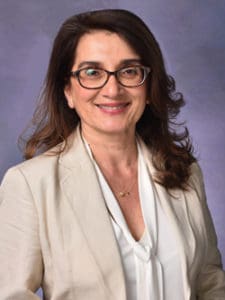Written by: Jasmin Saidi-Kuehnert

Photo: Maui, HI / Jasmin Saidi-Kuehnert
If I had a choice as to who would be our next Secretary of Education, it would be either Dr. Jill Biden or Dr. Michael Sorrell, President of Paul Quinn College. Both have proven years of experience in the field and are genuine about their commitment to bettering our education system.
For this week’s blog, I’d like to focus on Michael J. Sorrell, who was the keynote speaker at the 2020 ASU+GSV Virtual Summit. Dr. Sorrell emphasizes the importance of putting the needs of students and communities on top of the list. He is the longest sitting President at Paul Quinn College and is a vocal advocate of an education system where schools and colleges work together to provide students the learning experience and career preparation needed for employment.
Dr. Sorrell sees our education system as broken because as he said: “our country is broken.” When the plight of over 40 million Americans in the richest country in the world is living in scarcity, where there is no living wage, where healthcare is inadequate and the education system is flawed, I can see why he sees our country as “broken.”
But Dr. Sorrell is not solely about bringing to the surface our country’s flaws. He also has a vision, an inspiring one I must add, for our education system. If you haven’t heard Dr. Sorrell speak, check out the talk he gave at the SXSWEDU 2018 in this link.
Here is a summary of what he envisions and if we are fortunate to have either him or another qualified candidate as our next U.S. Secretary of Education, we may just see some of them put into play.
- Year-round education model – Dr. Sorrell proposes the need to revise our school calendar to a year-round model since we are no longer an agrarian society where parents needed their children to farm the lands during the summers. Instead, we could have in place a short break from mid-July to mid-August, enough to offer everyone, includes teachers, administrators, and parents a respite.
- Increase salaries of teachers – Teachers’ salaries would need to be commensurate with the new year-round model.
- Direct pathway between K-12 and Colleges/Universities – Establish a direct relationship between schools from K-12 with the over 4,300 U.S. colleges and universities so that each school has a partner relationship with a local college or university. He recommends that on starting their first day of Pre-K, the child’s family is to be given an acceptance letter to the local college. This pathway changes the outlook many parents have with higher education. Dr. Sorrell noted that studies show that it is only people who have gone to college who believe college education is for everyone and their children. He also recommends, where possible, schools should be placed on college campuses where professors and school-teachers have a working relationship.
- Importance of Reality-Based Education – Dr. Sorrell believes that students fare better when they see a connection between where they are and where they are heading. In order to achieve this, he recommends the following initiatives:
- Project-based learning – Adopt project-based learning at every level of the education system where students are taught how to solve the problems of their day to day lives. Enable the students to be active participants in solving their own problems and teach them to be entrepreneurs of their lives. And, most importantly, teach them common good principles and values such as respect, empathy and a reminder that our successes are intertwined.
- Mandatory Internships and Apprenticeship Programs – The number one way to combat poverty is employment which can be attainable by having in place mandatory internships and apprenticeship programs.
- Reading, Writing, Digital Literacy Skills – Make reading, writing, and digital literacy skills a required component of every subject/class. The ability to write and read well and be digitally literate is the key to success in the work world.
- Diversify teacher pool for ALL schools – Teachers at all schools need to represent diversity. Make cultural competency training mandatory. There is nothing wrong about, as Dr. Sorrell noted, “learning to be sensitive and appreciating other people’s cultures.”
We need visionaries with sound ideas to fix our education system and I see Dr. Sorrell as one who is leading the way.

Jasmin Saidi-Kuehnert is the President and CEO of the Academic Credentials Evaluation Institute (ACEI).

The Academic Credentials Evaluation Institute, Inc. (ACEI), was founded in 1994 and is based in Los Angeles, CA, USA. ACEI is a full-service company providing complete and integrated services in the areas of international education research, credential evaluation, and translation. ACEI’s Global Consulting Group®, offers expertise in the following specialties: Media and Branding, Global Pathways, and Diversity, Equity and Inclusion (DEI) to interested institutions and organizations around the globe. www.acei-global.org
